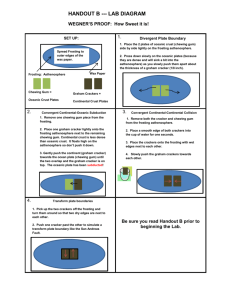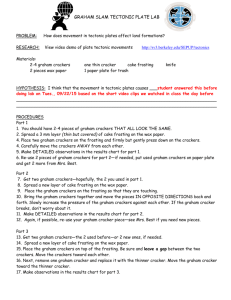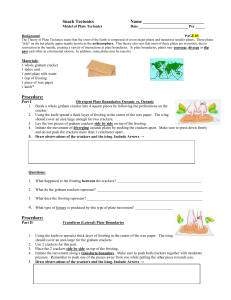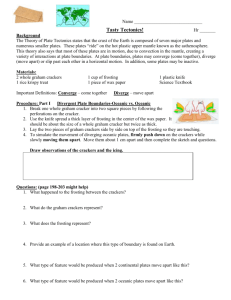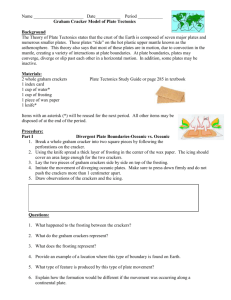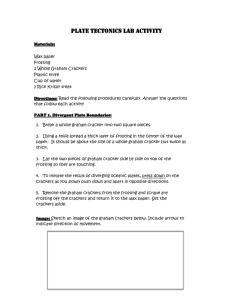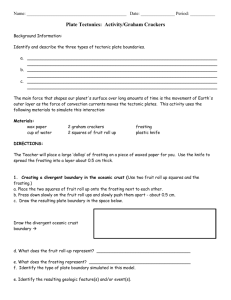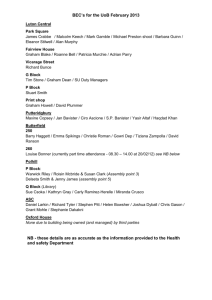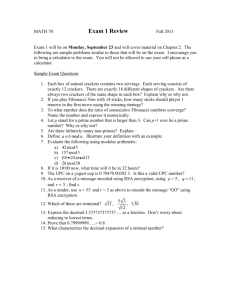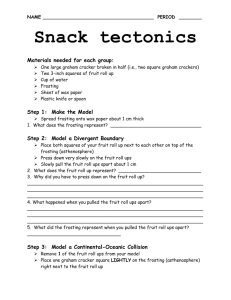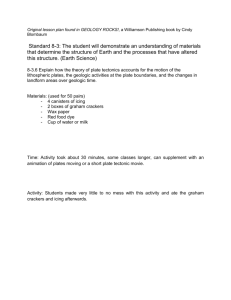Graham Slam Tectonic Plate Lab
advertisement
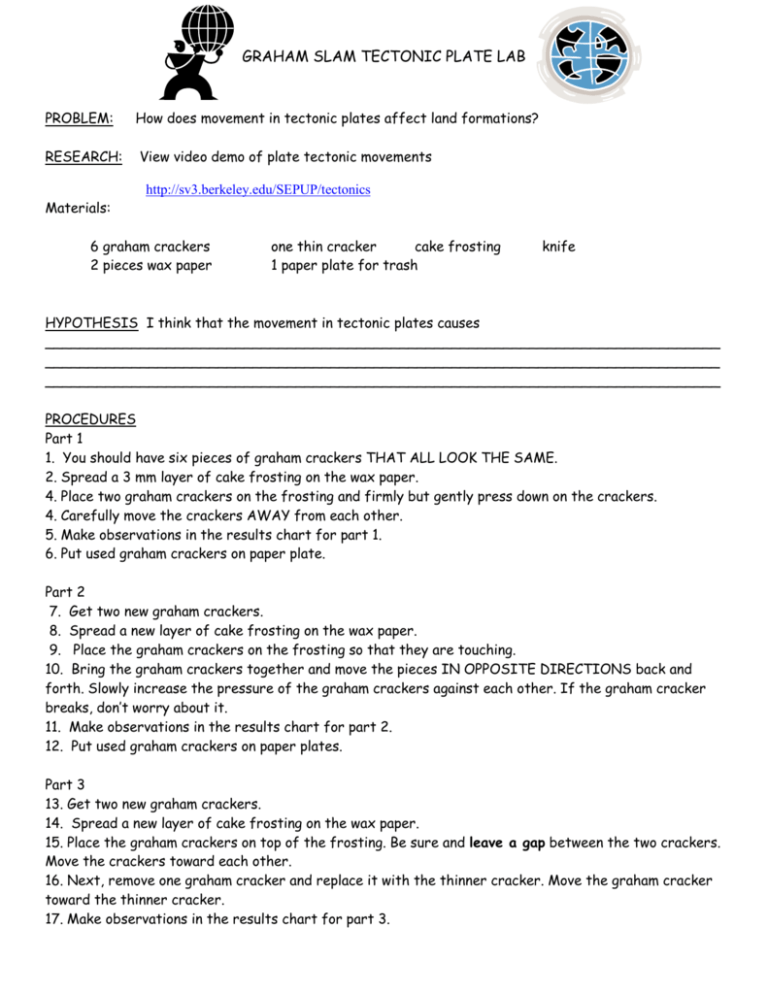
GRAHAM SLAM TECTONIC PLATE LAB PROBLEM: How does movement in tectonic plates affect land formations? RESEARCH: View video demo of plate tectonic movements http://sv3.berkeley.edu/SEPUP/tectonics Materials: 6 graham crackers 2 pieces wax paper one thin cracker cake frosting 1 paper plate for trash knife HYPOTHESIS I think that the movement in tectonic plates causes ______________________________________________________________________________ ______________________________________________________________________________ ______________________________________________________________________________ PROCEDURES Part 1 1. You should have six pieces of graham crackers THAT ALL LOOK THE SAME. 2. Spread a 3 mm layer of cake frosting on the wax paper. 4. Place two graham crackers on the frosting and firmly but gently press down on the crackers. 4. Carefully move the crackers AWAY from each other. 5. Make observations in the results chart for part 1. 6. Put used graham crackers on paper plate. Part 2 7. Get two new graham crackers. 8. Spread a new layer of cake frosting on the wax paper. 9. Place the graham crackers on the frosting so that they are touching. 10. Bring the graham crackers together and move the pieces IN OPPOSITE DIRECTIONS back and forth. Slowly increase the pressure of the graham crackers against each other. If the graham cracker breaks, don’t worry about it. 11. Make observations in the results chart for part 2. 12. Put used graham crackers on paper plates. Part 3 13. Get two new graham crackers. 14. Spread a new layer of cake frosting on the wax paper. 15. Place the graham crackers on top of the frosting. Be sure and leave a gap between the two crackers. Move the crackers toward each other. 16. Next, remove one graham cracker and replace it with the thinner cracker. Move the graham cracker toward the thinner cracker. 17. Make observations in the results chart for part 3. RESULTS Direction of movement Part 1 Observations – Draw & Label Possible occurrence on earth Pulling apart Part 2 Pushing in opposite direction. Part 3 Pushing together Discussion Questions 1. What type of plate behavior is represented by Part 1? 2. What landform is created by what happened in Part 1? 3. What happens to the frosting when you move the crackers away from each other? 4. What do the graham crackers represent? 5. What does the frosting under the crackers represent? 6. What does the frosting between the crackers represent? 7. What type of plate behavior is represented by Part 2? 8. What landform is created by what happened in Part 2? 9. What kind of plate movement do we call what is described in Part 2? 10. Why do you suppose the cracker broke? 11. Where in the United States do we find a plate boundary like this? 12. What happens when the crackers move toward each other? 13. What landforms or events may occur during this type of plate behavior? 14. What happens when one of the crackers (plates) is thinner than the other?
